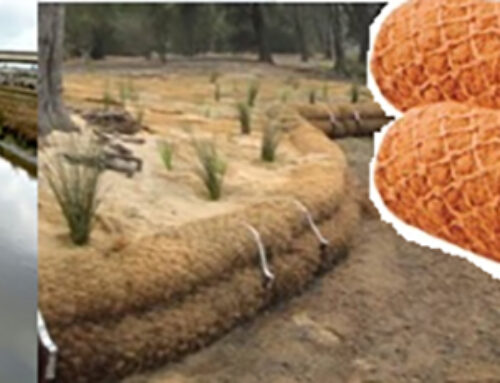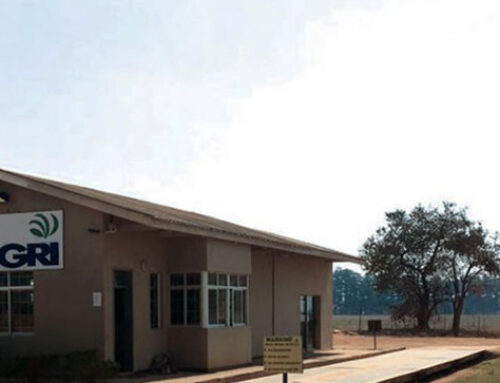Atlas Mills has been growing rapidly since it was founded in Tirana in 2003 and has already earned a 33% share of Albania’s flour market. Atlas Mills was part of the Greek owned Loulis Group, a 300 year old enterprise which operates flour mills throughout Greece and the Balkans and has garnered a 20% share of the regional market of 50 million consumers. In 2009 Loulis Group’s stake in Atlas Mills was acquired from Mr. Dimitrios Thomoglou.
The Atlas company has been active in Albania since 1995. In addition to Atlas Mills, it has also launched Atlas Transport, which handles the transport of Atlas Mills’ raw materials and finished products, and Atlas Grain Shipping, which transports wheat. Atlas Mills’ CEO, Dimitrios Thomoglou, says, “Our aim is to maintain a wonderful relationship with our customers and the market by constantly producing the best products at the most attractive prices.”

State of the art mill
Atlas Mills invested €12 million in a new state of the art mill which began production in 2005; it is ideallylocated 6 km from the centre of Tirana, 10 km from the airport and 35 km from Durresi Port. Now the company is continuing to expand its markets. In addition to its dominant position in Albania, Atlas Mills currently exports its products to Montenegro, Kosovo and Greece. The company imports wheat from Russia and Ukraine, being hampered by tariff restrictions from importing from Europe. With its drive, flexibility and impressive track record in spite of Albania’s economic challenges, Atlas Mills demonstrates the potential of the Albanian economy.
Strong commitment to quality
An emphasis on quality and the willingness to move into new activities have given Atlas Mills its competitive edge. Explaining the company’s success story, Dimitrios Thomoglou says, “The focus on quality is a huge drive behind Atlas’ strong performance. Atlas uses only the finest ingredients for its flour, which is designed for individual consumers as well as for professional uses.” Atlas Mills’ product portfolio includes Atlas Flour 100, for home cooking; Atlas Farin’ AP, with added rising agents; self rising Farino Flour, perfect for cakes; all purpose Flour Ola; and Natural, the ideal flour for bread.
Atlas Mills operates according to the highest international standards, including ISO 9001:2000 quality standards and HACCP (Hazard Analysis Critical Control Point) specifications. All the mill’s equipment and production processes are continuously inspected and upgraded in order to maintain the high quality of Atlas Mills’ flour and to guarantee that all health, safety and quality criteria are met. Atlas Mills also invests significantly in staff training to ensure the best possible human resources.
Move into pasta production, hydropower
CEO Dimitrios Thomoglou aims to continue to increase Atlas Mills’ market share and boost its production capacity while also getting involved in new activities that make the most of Albania’s development potential. He says, “We are contemplating a move into pasta production. We believe that developing production capacity for a pasta plant in Albania
will both lower the company’s costs as well as add a key ingredient to Albania’s domestic agriculture industry, which has been largely neglected since the fall of communism in the early 1990s.”
Hydropower is another sector targeted by Dimitrios Thomoglou. He explains, “We are also considering investing in hydropower plants, using Atlas Mills’ success to leverage our investment potential in this new field of activity, which we believe offers exceptional prospects thanks to Albania’s rich hydropower resources. In fact, Albania has the greatest hydropower capacity in the Balkans.”
Looking for foreign partners
Atlas Mills welcomes the chance to work with foreign investors in its many projects and is ready to serve as the ideal local partner for investors looking to get in on the ground floor in Albania. Dimitrios Thomoglou explains, “Atlas is open to joint venture and partnership opportunities with international investors, for example in our planned pasta production facility and our hydropower initiatives.”
Dimitrios Thomoglou cites a number of viable investment opportunities in Albania’s agriculture sector, including irrigation systems and subsidising larger plots of land for local farmers. He says, “Local produce is of very high quality, yet the conditions for developing this important industry are not currently fostered in Albania. There needs to be more investment channeled into Albanian agriculture, and investors in Albanian agriculture can certainly count on attractive returns.”
Supporting Albania’s economic growth
Albania needs strong private companies, and Dimitrios Thomoglou is committed to making sure that Atlas Mills continues to play a key role in the country’s economic development. He urges international investors to look into opportunities in Albania, and explains, “The positive experience of Atlas Mills here in Albania shows that this country can support economic successes by foreign investors. Our history should reassure any investor thinking of getting involved in projects here.”




